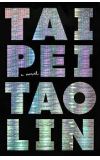
06 Jul 2013 02:38:36
In Taipei a writer named Paul – who rather resembles Lin – wanders around New York and Taipei with his girlfriend Erin and takes a lot of drugs. Imagine Trainspotting, with better teeth, and on a generous personal allowance. Paul and Erin chug down cocaine, MDMA, Adderall, Percocet, caffeine, LSD, mushrooms, heroin, Xanax, Klonopin, Methadone, Oxycodone and more. Not surprisingly perhaps, this chemical regime rather restricts what else they can get up to: mostly they film themselves having sex and make movies on their MacBook.
The musings and wanderings of Paul and Erin undoubtedly have a shambling, mumbling charm, and the book is written in the affectless style – half-journalese, half-journal-entry – that we might now call "bloggy". Continually aroused but perpetually dulled, it's a post-coital kind of style in which fragmented thoughts follow narcissistic flights of fancy, with an underlying tone of desperation and despair. Paul has nothing much to say, but he says it anyway: "When their burritos arrived he noticed, with preemptively suppressed interpretation, that his, of the three, appeared slightly darker."
Much prose writing exerts itself trying to be dutifully good – offering the reader plot-points, sentence-thrills, insights and ideas. Tao Lin doesn't bother too much with that sort of malarkey, having presumably realised from all his hours spent on Tumblr, Twitter, Gmail and Gawker that merely recording his own impulses and inclinations might themselves become the matter of art. (Though there are occasional bravura passages of old-fashioned polished prose brilliance, such as this: "As the beating slowly normalized he'd think of his heart which, unlike him, was safely contained, away from the world, behind bone and inside skin, held by muscles and arteries in its place, carefully off-center, as if to artfully assert itself as source and creator, having grown the chest to hide in and to muffle and absorb – and, later, after innovating the brain and face and limbs, to convert into productive behaviour – its uncontrollable, indefensible, unexplainable, embarrassing squeezing of itself.")
Of course, in order for the slacker-smart shtick to succeed, a very particular kind of contractual bond is required with the reader: a form of masochistic collusion. Lin's prose – artless, sophisticated, manipulating – requires the endorsement of a similarly turned-on playmate, just as Paul is seeking, and finds, a turned-on playmate in Erin. Taipei is really a big long lover's pinch.
What characterises the book indeed – in the person of Paul, in its tone, its plot, its shiny cover – is its desperate desire to connect. It reads like a howl, and also – with its cast of angel-headed hipsters burning for the ancient heavenly connection to the starry dynamo in the machinery of night – rather like Allen Ginsberg's poem "Howl". Passage after passage in the novel dwells on the meaning of disassociation and self-exile. "He visualized the vibrating, squiggling, looping, arcing line representing the three-dimensional movement, plotted in a cubic grid, of the dot of himself, accounting for the different speed and direction of each vessel of which he was a passenger – taxi, Earth, solar system, Milky Way, etc." "One seemed simply to be here, less an accumulation of moments than a single arrangement continuously gifted from some inaccessible future." "The unindividualized, shifting mass of everyone else would be a screen, distributed throughout the city, on to which he'd project the movie of his uninterrupted imagination."
On the book's front cover, Bret Easton Ellis is quoted as saying "With Taipei Tao Lin becomes the most interesting prose stylist of his generation." Ellis's quote seems to have come from a tweet, which goes on, "which isn't to say that Taipei isn't a boring novel."
The category of the interesting bore might include Jean-Michel Basquiat, Edie Sedgwick, Slavoj Žižek, and Bret Easton Ellis himself – people for whom the artwork is not so much an aesthetic achievement as an overflow or outpouring. Taipei might be the first truly social media novel, in so far as it resembles a piece of social media. A massive discharge of waste matter. Overspill. Underwritten.

